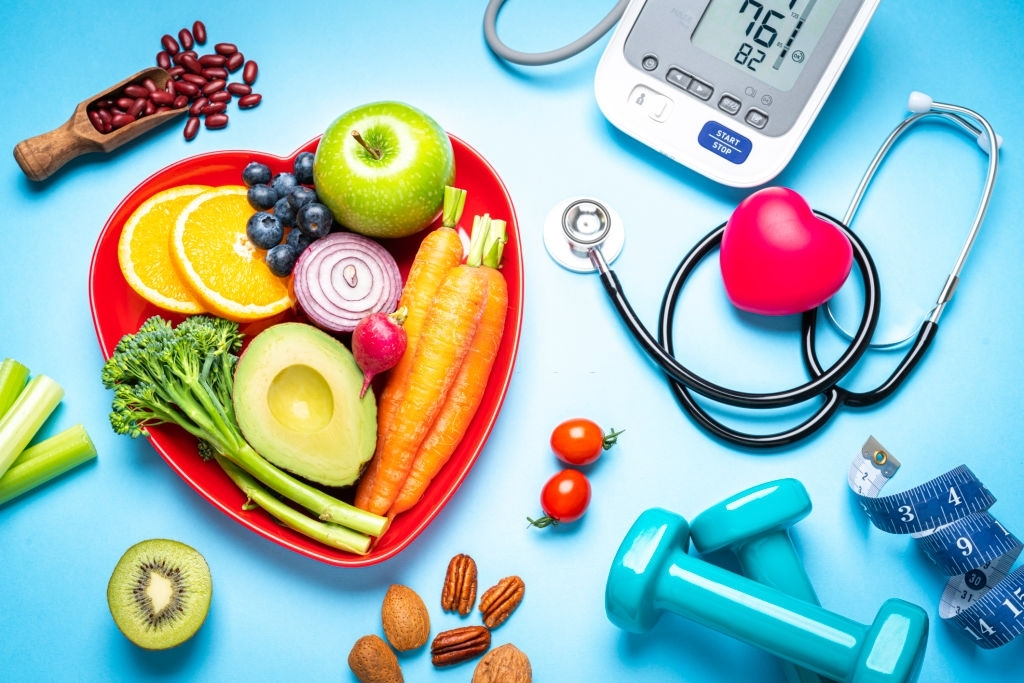You might not give it much thought throughout the day, but your heart is constantly working around the clock for you. Your heart is the most important muscle in your body because it pumps blood and oxygen to all of your organs.
When your heart doesn’t get the care it needs, serious issues can develop in the lining of the arteries, which then lead to plaque formation. Plaque is what affects the normal functioning of heat and then leads to heart attacks and blockage of blood flow in the arteries. Taking action will help you keep you and your heart in proper health.
The Basics: Overview
Heart disease is the leading cause of death for both men and women in the United States. Take steps today to lower your risk of heart disease.
To help prevent heart disease, you can:
- Eat healthy
- Get active
- Stay at a healthy weight
- Quit smoking and stay away from secondhand smoke
- Control your cholesterol and blood pressure
- Manage stress
Some facts about Heart Health
The health of our hearts depends on a lot of lifestyle factors. Poor nutrition choices, bad lifestyle decisions, and improper mental health care can result in strokes, heart attacks, embolisms, and coronary heart disease. A healthy lifestyle will make your heart healthier.
It’s important to remember that the choices you make in your everyday life have direct impact on your health, especially your heart. Because your heart serves such a critical function, taking care of it becomes all the more important to your overall health.
Fortunately, there are a number of ways you can take your health into your own hands.
Here are 7 ways you can do to look after your heart.
1. QUIT SMOKING
Smoking is one of the main causes of coronary heart disease and can lead to heart attacks. A year after giving up, your risk of a heart attack falls to about half that of a smoker. Smoking leads to a buildup of fatty substances in the arteries, which is a chief contributor to deaths from smoking. Secondhand smoke is also linked to cardiovascular disease.
2. EAT MORE VEGGIES AND FRUITS
Vegetables and fruits are good sources of vitamins and minerals. Vegetables and fruits are also low in calories and rich in dietary fiber. Vegetables and fruits, like other plants or plant-based foods, contain substances that may help prevent cardiovascular disease. Eating more fruits and vegetables may help you cut back on higher calorie foods, such as meat, cheese and snack foods.
Featuring vegetables and fruits in your diet can be easy. Keep vegetables washed and cut in your refrigerator for quick snacks. Keep fruit in a bowl in your kitchen so that you’ll remember to eat it. Choose recipes that have vegetables or fruits as the main ingredients
3. CONTROL YOUR PORTION SIZE
In short, you need to manage your weight. Being overweight can increase your risk of heart disease. Stick to a healthy, balanced diet low in fat and sugar, with plenty of fruit and vegetables, combined with regular physical activity.
Your diet heavily contributes to the health of your heart. The nutrients you consume can either support a healthy heart of undermine it. Considering that excessive eating can lead to unhealthy weight gain, a major risk to heart health, so portion control and healthy choices become all the more important.
MANAGE BLOOD PRESSURE
High blood pressure is the no. 1 risk factor for brain stroke and a major risk factor for almost half of all heart diseases. Keep your blood pressure under check by eating a healthy diet, avoiding excess salt, being physically active, and maintaining healthy body weight.
ACHIEVE AND MAINTAIN A HEALTHY BODY MASS INDEX (BMI)
BMI or Body Mass Index is based on your height and weight. If your BMI is in the range of 25 to 30, then you are overweight. If the BMI is greater than 30, then you are considered obese. Being obese brings with it a lot of health complications, hence it is important for you to maintain a healthy BMI if you want to avoid health complications.
CUT DOWN ON SALT INTAKE
Eating a lot of salt can contribute to high blood pressure, a major risk factor for heart problems. Reducing salt intake is an important part of a heart-healthy diet. To maintain healthy blood pressure, avoid using salt at the table and try adding less to your cooking.
Also, keep a watch on ready to eat foods as they generally have high sodium content. Watch out for high salt levels in ready-made foods. Most of the salt we eat is already in the foods we buy.
STAY ACTIVE
Getting – and staying – active can reduce your risk of developing heart disease. It can also be a great mood booster and stress buster.
Do 150 minutes of moderate-intensity aerobic activity every week. Whether you walk or run, play sports or swim, make sure you build enough active minutes into your week. It doesn’t have to be a chore—find a physical activity you enjoy and just stick with it.

